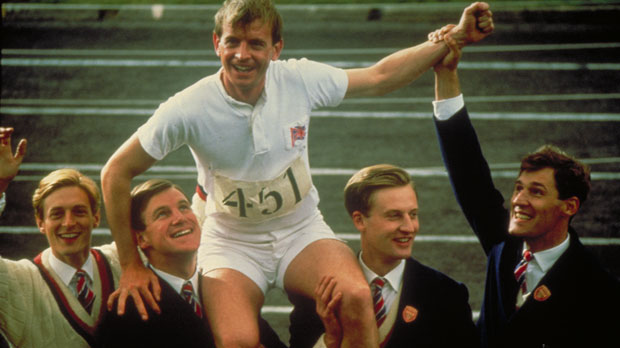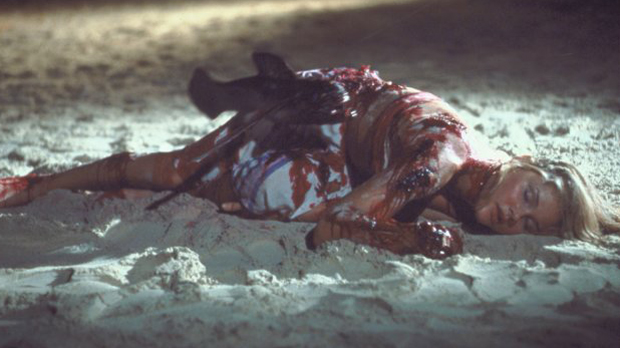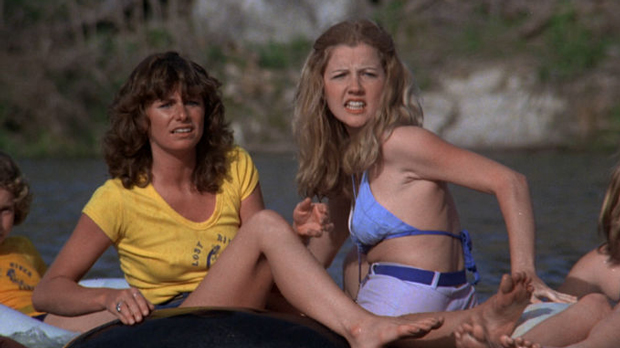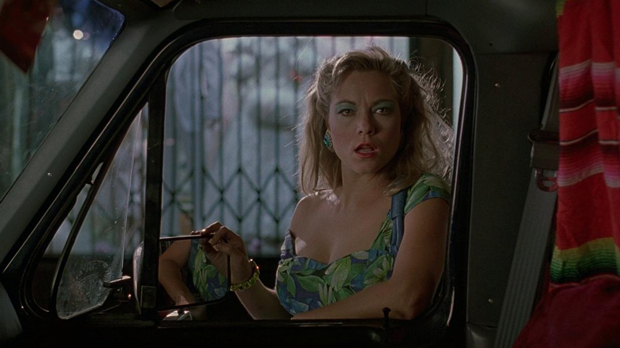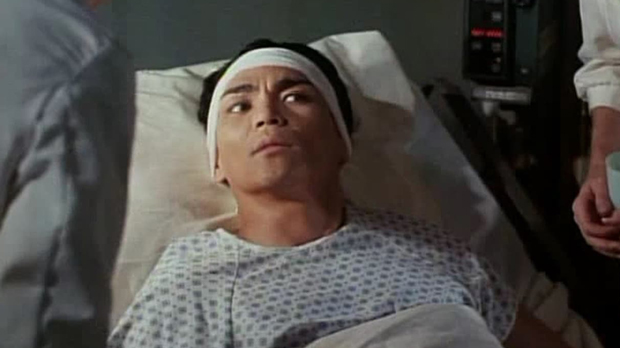
Chariots of Fire (1981) The Ladd Company/Drama RT: 124 minutes Rated PG (mild language) Director: Hugh Hudson Screenplay: Colin Welland Music: Vangelis Cinematography: David Watkin Release date: October 9, 1981 (US) Cast: Ben Cross, Ian Charleson, Nicholas Farrell, Nigel Havers, Ian Holm, John Gielgud, Lindsay Anderson, Cheryl Campbell, Alice Krige, Brad Davis, Dennis Christopher, Struan Rodger, Nigel Davenport, Patrick Magee, David Yelland, Peter Egan, Daniel Gerroll. Box Office: $58.9 million (US)
Rating: ****
Anybody who regards Chariots of Fire as a mere sports film is missing the point in a big way. While the action centers on two runners competing in the 1924 Olympics, the fact-based movie also deals with issues of class, race and religious devotion. It’s an exceptional film that doesn’t require the viewer to love, or even like, sports (which I don’t).
I saw this amazing film, the surprise winner of the 1981 Best Picture Oscar, not long after it first came out. At the tender age of 14, I neither understood nor appreciated the film’s deeper meaning, but loved the aesthetics of it. The cinematography, editing and music- all incredible! Chariots of Fire is a beautifully-mounted film that uses running to make a statement about human nature.
The two main characters use running as a means of proving themselves to the world around them. Each one has his own reasons for taking part in such a physically demanding endeavor. Harold Abrahams (Cross, First Knight) is the son of a Lithuanian Jew and all too familiar with anti-Semitism and being made to feel inferior. Eric Liddell (Charleson, Gandhi) is a devout Christian and the son of Scottish missionary parents. Both men have something to prove. Abrahams runs to prove his own worth; Liddell runs for the glory of God. Both men are accepted to represent the UK in the 1924 Olympics in Paris. It goes without saying that they both have to surmount personal hurdles on the road to self-victory.
Chariots of Fire opens at a memorial service for Abrahams in 1978 attended by his two surviving teammates. The film then flashes back to his first day at Cambridge University in 1919 where he makes a name for himself by being the first person to ever complete the Trinity Great Court Run. For the uninitiated, it entails running around the entire college courtyard in the time it takes for the school clock to strike 12. Despite this, he still faces anti-Semitism from the staff and administration, the latter represented by two snobbish college masters played by John Gielgud (Arthur) and director Lindsay Anderson (if ….).
Liddell decides to pursue competitive running, reasoning that God made him fast for a reason. His equally devout sister Jennie (Campbell, Greystoke) disapproves of his decision as she believes it means that he no longer cares about God. After Liddell beats Abrahams in a race, he hires professional trainer Sam Mussabini (Holm, the LOTR trilogy) to improve his technique. Mussabini, a very demanding coach, is of Italian-Arabic descent and completely understands racism. Liddell creates quite a stir when he refuses to run on the Sabbath, a decision that even attracts the attention of the Prince of Wales (Yelland). Despite tremendous pressure from the British Olympic committee, he refuses to change his mind.
Chariots of Fire is a deeply moving experience on many levels, but mainly for its nostalgic aspect. The story is set within the framework of a flashback in which the echoes of the past are clearly heard. The film’s opening titles, sandwiched between the opening memorial service and Abrahams arriving at Cambridge, feature a beautiful sequence of a group of strong young men running on the beach as the theme song plays on the soundtrack. This sequence also serves as the closing scene, but to different effect. The first time, it’s thrilling. The second time, it’s poignant. Now they’re either old or deceased; we see them as figures from long ago. This scene must surely play over and over again in the memories of those still living, serving as a reminder of the young men they once were and never will be again. Chariots of Fire is the feature-film debut of director Hugh Hudson (Greystoke) and it’s a remarkable one.
Rarely does a filmmaker hit a grand slam their first time at bat. Everything comes together perfectly in Chariots of Fire to form one of cinema’s greatest works of art. I’m particular fond of the use of an electronic score. It’s performed by the Greek composer Vangelis Papathanassiou and it put an Oscar in his hand. It also took home Academy Awards for Costume and Original Screenplay. What wasn’t expected was its win for Best Picture over Reds, the odds-on favorite that year. I remember watching the Oscars that year (the first time my dad let me stay up for the whole thing) and gasping when it was announced. The Academy got it right; it’s really a terrific film. The acting is first-rate all the way, especially by the two leads and Holm. He has a great scene where he reacts to the news that Abrahams won his race. His reaction is quite touching as this victory represents a huge stride forward for those that society deems inferior based on race or faith. He has to hear the news second-hand as he’s banned from the Olympic stadium. Chariots of Fire is a masterpiece of cinematography and editing. The racing scenes are very well-orchestrated and exciting. I cannot praise this film enough; it’s perfect on every conceivable level.

